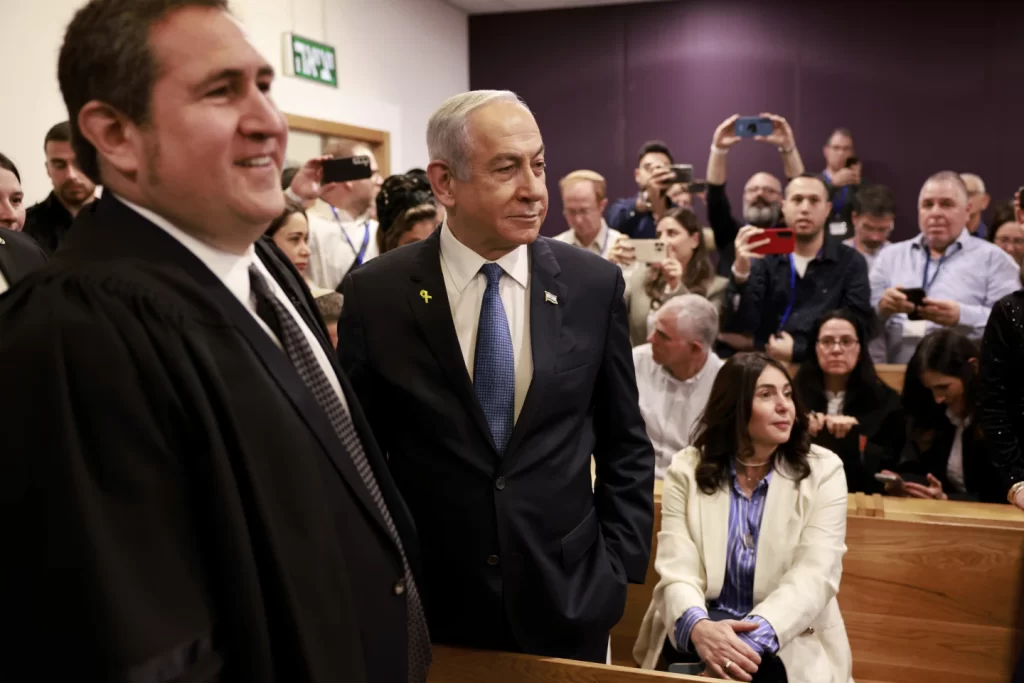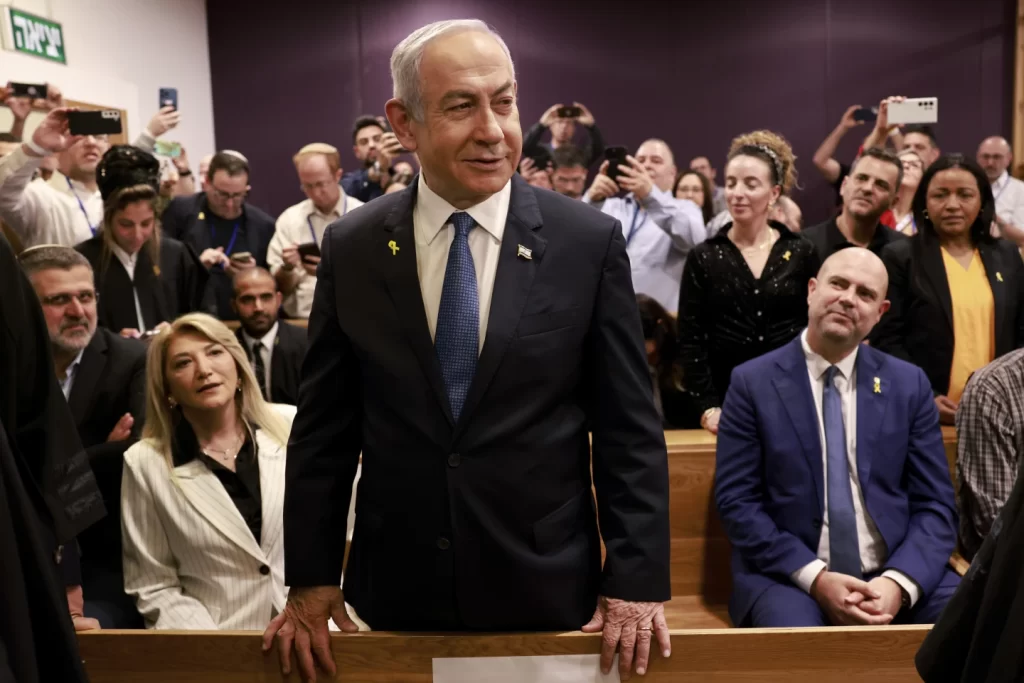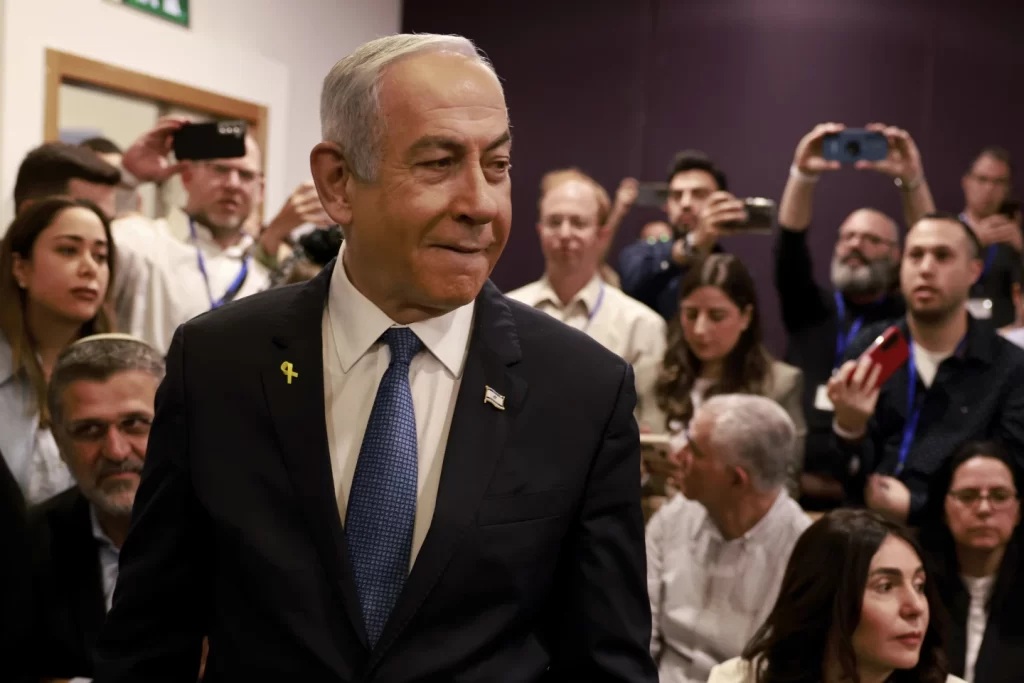Israeli Prime Minister Benjamin Netanyahu vowed on Tuesday to refute what he called “absurd” corruption charges as he testified in his long-running criminal trial. The appearance marked the first time a sitting Israeli leader has taken the stand as a defendant.

The trial, unfolding in a fortified Tel Aviv courtroom, is the latest chapter in the political and legal drama surrounding Israel’s longest-serving leader. Netanyahu, 75, faces charges of fraud, breach of trust, and bribery in three separate cases. The charges center on allegations of accepting lavish gifts, including cigars and champagne, from wealthy benefactors and advancing regulatory favors for media moguls in exchange for favorable coverage.
Netanyahu Defiant in Court
In his opening testimony, Netanyahu dismissed the charges as baseless and politically motivated, asserting that they pale in comparison to the challenges he has faced as prime minister. “I waited eight years for this moment to say the truth,” he told the court, addressing the judges while his supporters and family members looked on.
Netanyahu sought to portray himself as a dedicated public servant, denying allegations that he allowed personal indulgences to compromise his leadership. “I smoked cigars but could barely finish them because of my workload, and I hate champagne,” he quipped, attempting to downplay accusations tied to his lifestyle.
His lawyer, Amit Hadad, accused prosecutors of fabricating the charges, describing them as a “puzzle that doesn’t fit together.”

Divisions Within Israel
The trial has exacerbated Israel’s deep political divisions. Outside the courthouse, protesters gathered with banners branding Netanyahu a “Crime Minister,” while his supporters accused the judiciary of overreach. Families of hostages held in Gaza also demonstrated, pressing for action as the country remains embroiled in conflict with Hamas.
Under Israeli law, a sitting prime minister is not required to resign when facing criminal charges. However, Netanyahu’s legal troubles, combined with public discontent over his handling of the October 7 Hamas attacks and the ongoing war in Gaza, have tarnished his image. Polls suggest he would struggle to form a government if elections were held today.
Legal and Political Stakes
Netanyahu’s testimony, expected to last several weeks, adds to his already demanding schedule as he oversees military operations in Gaza and navigates regional tensions. Critics have questioned his ability to lead effectively while on trial, but Netanyahu dismissed such concerns, insisting he can balance his responsibilities.
The trial, which began in 2020, has featured testimony from prosecution witnesses, including former aides who turned state witnesses. Prosecutors allege Netanyahu prioritized personal image over national interests, claims his legal team vehemently denies.

A verdict in the case is not expected until 2026, and Netanyahu has the option to appeal any ruling. His supporters view the trial as a politically motivated attempt to unseat him, while opponents argue it reflects the urgent need for accountability in Israel’s leadership.
Mounting International Pressure
Beyond his legal battles, Netanyahu faces an arrest warrant issued by the International Criminal Court for alleged war crimes during Israel’s Gaza campaign. The warrant further isolates Netanyahu on the global stage, placing him alongside leaders like Russian President Vladimir Putin and former Sudanese President Omar al-Bashir.
As the trial continues, Netanyahu’s future—and his legacy as Israel’s longest-serving prime minister—hangs in the balance, with both domestic and international pressures threatening to reshape his political career.
AP



